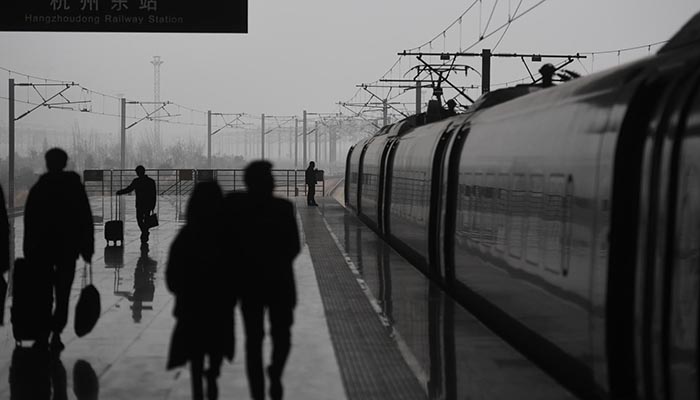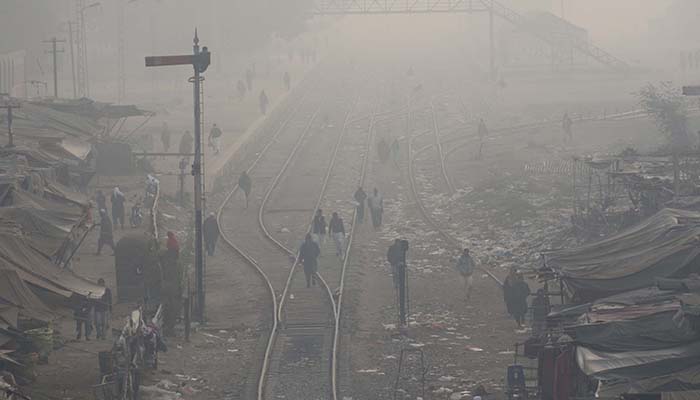China Speed on a Pakistani expressway
China is winning the battle on pollution. But is Pakistan paying attention?
March 30, 2018

Over the last few years, our neighbour, China, has become a leader in combating air pollution. Previously, images abounded of the world’s most populous country, second largest economy, a vast and dynamic nation, engulfed in a shroud of smog.
I lived in Beijing, China, from 2012 to 2017, and witnessed China’s development first-hand. Thousands of kilometres of highways and railway lines popped up, it seems, daily out of thin air. New cities arose where before there were none, and millions moved from the countryside to fill them overnight.
Much of the same has started to happen in Pakistan.
There are immense infrastructure projects underway under the watchful eye of our friendly neighbour. Large highways are being built, railway networks being laid down, rivers being damned for hydropower and deserts being mined for coal, amongst other things, at breakneck speed. And this is only the start. There’s also a skyscraper on the coast of Karachi, and numerous new towns and townships being built on the outskirts of every major city.
This tremendous pace of development has come to be known as, “China Speed,” and naturally, as the name suggests, the Chinese are in the driving seat. Under the One Belt One Road Initiative, work on the China-Pakistan Economic Corridor (CPEC) – a key component of the OBOR – is pacing through Pakistan without slowing down.
In turn, Pakistanis are now careening down these expressways with China Speed. But outside their windows are towns and cities engulfed in a cloud of soupy air.
This winter, the air pollution in Lahore hit a record-high of 1077 micrograms of particulate matter per cubic meter.
In fact, from October 2017 to date, the air pollution in Punjab has stayed well beyond the safety limits defined by Pakistan’s Environmental Protection Agency. The international media is already calling the hazardous air, which makes our eyes burn and breathing difficult, our “fifth season”.
During this deadly season, the smog is so dense that traffic is paralyzed due to poor visibility, planes cannot land, and people cannot make it work. Then, there’s also the increase in hospital admission rates, especially for patients susceptible to cardiovascular and respiratory diseases. The very young and the elderly are most vulnerable.
Imagine having to rush your loved one to the hospital because of an angina attack caused, unknowingly, by smog and then to be delayed because of poor visibility.
In the long term, this would lead to reduced lung capacity in children and the chance for genetic disorders in future generations.

A recent study has estimated the economic impact of air pollution in Pakistan at nearly $50 billion, or almost six per cent of our GDP. An estimated 135,000 deaths per year in Pakistan are attributed to ambient air pollution making it the leading cause of sickness and death in the country.
A citizens group filed a petition with the Lahore High Court in 2016 to address this largely unrecognised, ignored and invisible killer.
On November 14, 2017, after a few spectacularly smoggy days, then-Lahore High Court Chief Justice Mansoor Ali Shah directed the Punjab Government to submit a policy on controlling smog within three months, and subsequently formed a smog commission. Four months later, on March 15, Justice Ayesha Malik extended the deadline to April 17. Now, we are five months from the original ruling and the report still seems to be missing. I guess China Speed doesn’t apply here.
In the meantime, Beijing has quietly turned a corner. With policies just a few years in the making, rapid results are visible. China is developing a reputation for leadership in environmental management. The skies in Beijing are blue again, and the whole world is surprised: China is winning the battle on pollution. But is Pakistan paying attention?
Omar is the founder of the Pakistan Air Quality Initiative. He tweets @abido
Note: The views expressed are those of the author, and do not necessarily reflect the official policy or position of Geo News or the Jang Group.











